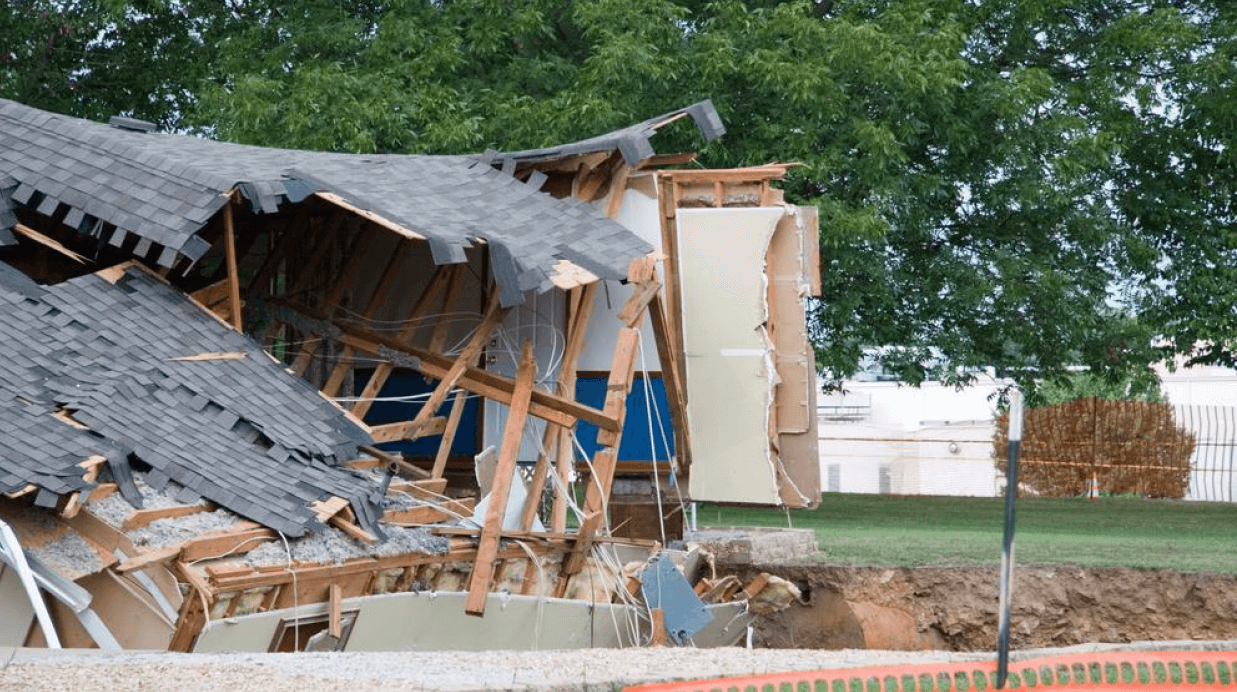
Sinkholes are rare, but they can be devastating. In 2013, Jeffrey Bush tragically lost his life when a sinkhole suddenly opened up under his bedroom in Florida. A year later, eight Corvettes were destroyed by a massive sinkhole in Kentucky. And in 2019, a Pittsburgh sinkhole swallowed the entire front of a city bus.
According to the U.S. Geological Survey (USGS), a sinkhole is a “depression in the ground that has no natural external surface drainage.” This means that rainwater doesn’t run off, but instead drains into the subsurface. The water eventually dissolves subterranean rock, creating spaces under the ground. When those spaces and caverns get too big, “a sudden collapse of the land surface can occur,” says USGS.
Sinkholes can also be caused by human factors, including construction or excavation activity.
According to USGS, the most damage from sinkholes tends to occur in:
When a sinkhole forms near or under your house, you may see subtle warning signs.
All houses settle over time, but multiple warning signs may indicate something more sinister is going on. Here are some red flags to watch out for, courtesy of Helicon:
Helicon also provides some warning signs to look for outside:
If you suspect a sinkhole around your home, contact your insurance professional. They may send someone to investigate and can advise you on ways to secure your property.
If a sinkhole opens up, leave your home immediately and call 911 when you get to a safe area.
Naturally occurring sinkholes, like earthquakes, involve ground movement that is not generally covered by standard homeowners insurance. Depending on where you live, you may be able to purchase sinkhole coverage as an endorsement to your homeowners insurance or as a stand-alone policy.
If sinkholes are a concern in your area, give us a call at 813-645-4404 to find out what coverage options are available and whether they might be a good fit for you.
This content is for informational purposes only and not for the purpose of providing professional, financial, medical or legal advice. You should contact your licensed professional to obtain advice with respect to any particular issue or problem.
Copyright © 2023 Applied Systems, Inc. All rights reserved.